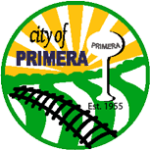Municipal Court
Municipal Court Docket
Courtroom Attire and Conduct
Deferred Disposition
Defensive Driving Request
Resolving Your Violation
Driver Responsibility Program
Violation Dismissals
Warrant Information
Youth Offenders
Request for Drivers Safety
Starting 04/13/2021: The Primera municipal court will no longer be accepting cash for any type of money transaction. The court will only accept Debit cards, Credit cards or money orders.
Judicial Staff
The Municipal Court Judge is only available during court session time. If you wish to speak with the Judge concerning your case, you must appear in court. Any contact with a Judge or by a Judge, concerning the merits of a pending case or proceeding, outside the presence of all parties or their representatives, is considered “EX Parte” communication.
Purpose
This informaiton is designed to provide information about criminal court proceedings. It is not a substitute for legal advice from a licensed attorney. If you have questions about your best course of action, what plea you should enter, your rights, or the consequence of a conviction of the offense for which you are charged, you should contact an attorney. Neither the clerk, judge, nor prosecutor can give you legal advice.
Your Rights
Under our American system of justice, all persons are presumed to be innocent until proven guilty. The State must prove you guilty “beyond a reasonable doubt” of the offense with which you are charged. Every criminal defendant has the right to remain silent and refuse to testify (without consequences). You have the right to retain an attorney and have them try your case or answer your questions. Since offenses in this court are punishable only by fine and not by incarceration, you do not have the right to appointed counsel.
You have the right to a jury trial. You may waive a jury trial and have a trial before the judge, commonly called a “bench trial.” If you elect to represent yourself, no person other than an attorney can assist you during a trial.
At trial you have many rights including:
You have the right to a jury trial. You may waive a jury trial and have a trial before the judge, commonly called a “bench trial.” If you elect to represent yourself, no person other than an attorney can assist you during a trial.
At trial you have many rights including:
- The right to have notice of the complaint not later than the day before any proceedings in the prosecution;
- The right to inspect the complaint before trial, and have it read to you at the trial;
- The right to hear all testimony introduced against you;
- The right to cross-examine witnesses who testify against you;
- The right to testify on your own behalf;
- The right not to testify (Your refusal to do so may not be held against you in determining your innocence or guilt.); and
- You may call witnesses to testify on your behalf at the trial, and have the court issue a subpoena (a court order) to any witnesses to ensure their appearance at the trial.
Appearance
In addition to your rights, you have some legal responsibilities. The law requires you to make an appearance in your case. Your appearance date is noted on your citation, bond, summons, or release papers. You or your attorney may appear in person in open court, by mail, or you may deliver your plea in person to the court. (Juveniles have a separate set of rules for their appearance. Please read the Children pamphlet).
Your first appearance is to determine your plea. If you waive a jury trial and plead guilty or nolo contendere (no contest), you may present extenuating circumstances for the judge to consider when determining the proper punishment. However, the judge is not required to reduce your fine. If you plead not guilty, the court will schedule a jury trial. You may waive a jury trial and request a bench trial. When you make your appearance by mail, your plea must be postmarked by your scheduled appearance date. If you plead not guilty, the court will notify you of the date of your trial.
If you enter a plea of guilty or no contest, you must also waive your right to a jury trial. You may request the amount of fine and appeal bond in writing and mail or deliver it to the court before your appearance date. You then have up to 31 days from the time you received a notice from the court to pay the fine or file an appeal bond with the municipal court.
Your first appearance is to determine your plea. If you waive a jury trial and plead guilty or nolo contendere (no contest), you may present extenuating circumstances for the judge to consider when determining the proper punishment. However, the judge is not required to reduce your fine. If you plead not guilty, the court will schedule a jury trial. You may waive a jury trial and request a bench trial. When you make your appearance by mail, your plea must be postmarked by your scheduled appearance date. If you plead not guilty, the court will notify you of the date of your trial.
If you enter a plea of guilty or no contest, you must also waive your right to a jury trial. You may request the amount of fine and appeal bond in writing and mail or deliver it to the court before your appearance date. You then have up to 31 days from the time you received a notice from the court to pay the fine or file an appeal bond with the municipal court.
